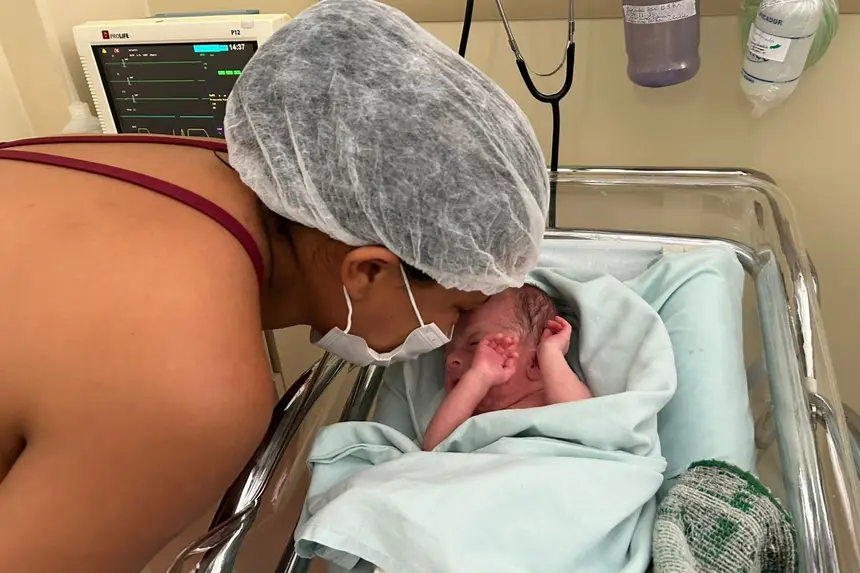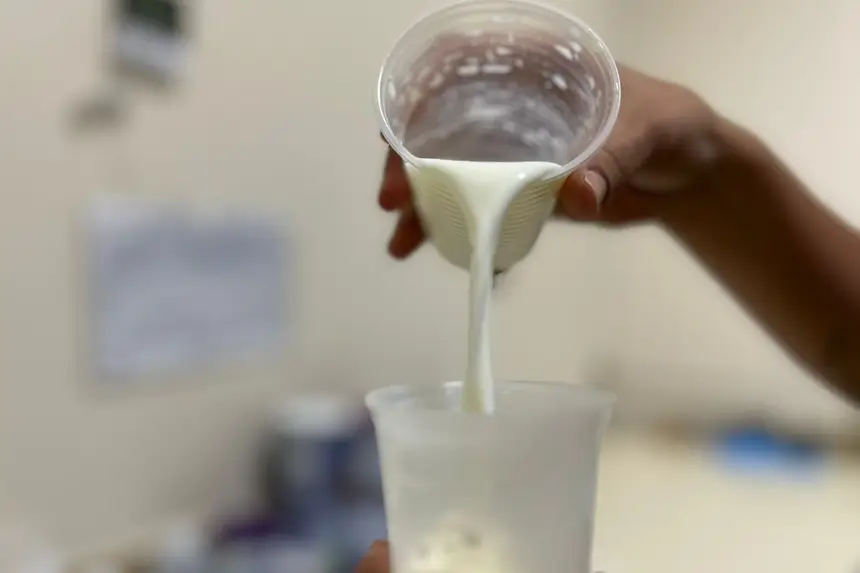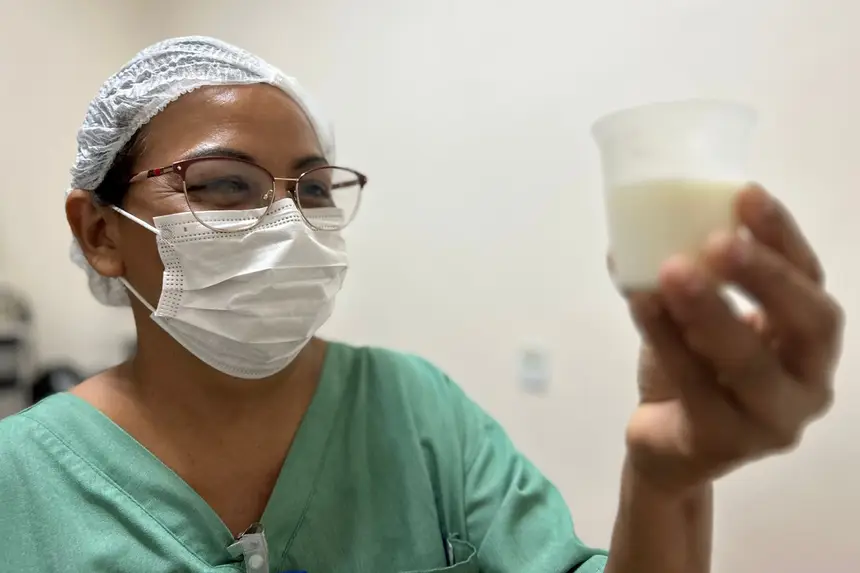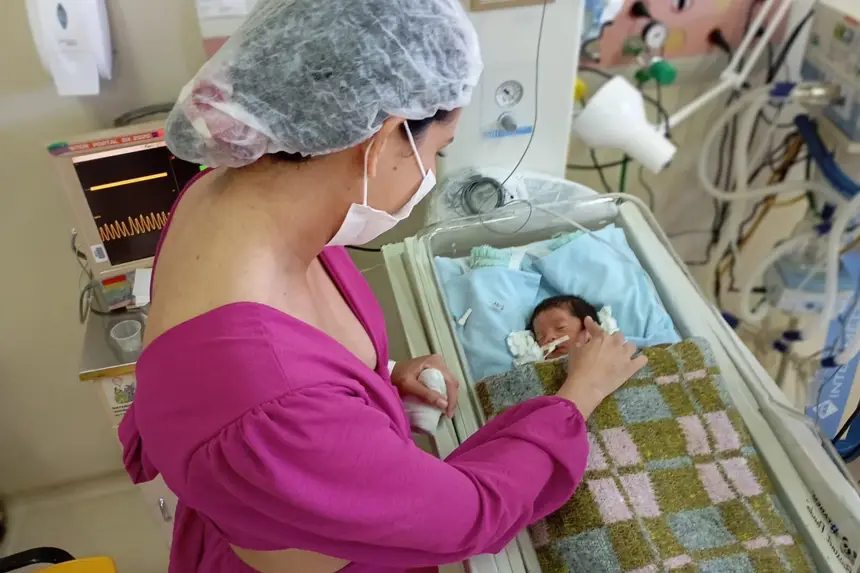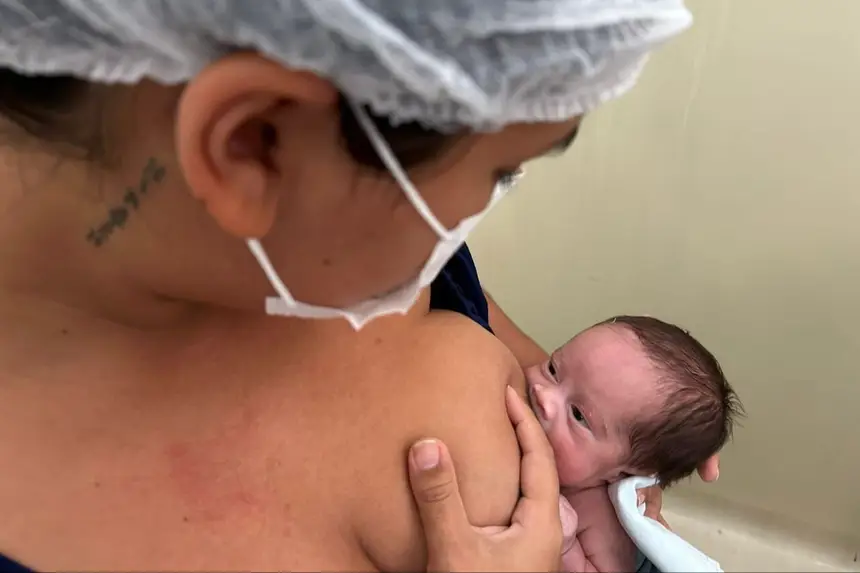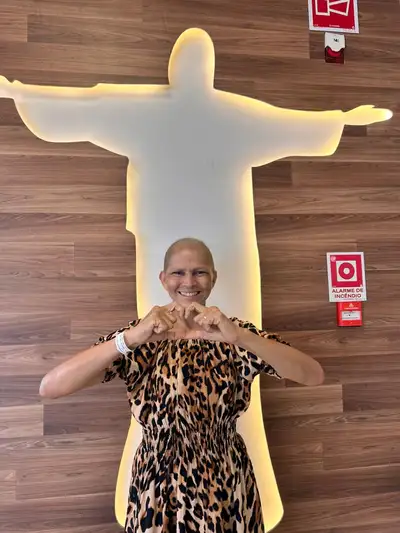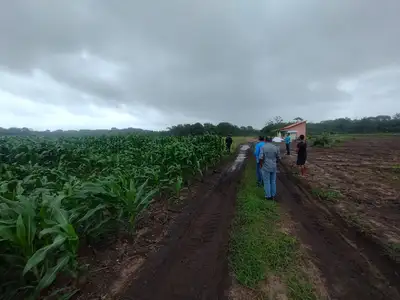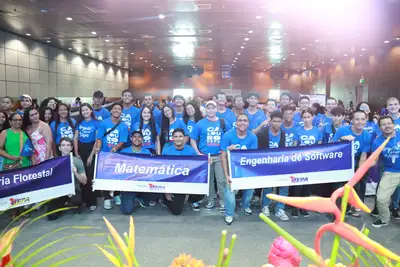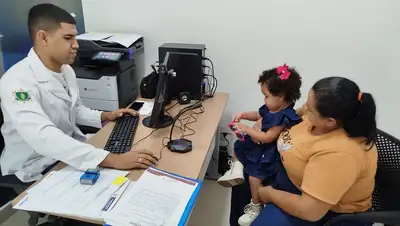Public Hospital of Transamazonica's Milk Bank Aids in the Recovery of Premature Babies
Unable to ingest their mother's milk, babies receive special nutrition and monitoring
Laura Vitória has just turned three months old. Weighing four kilograms and healthy, the girl receives her mother Larissa Farias's love and breastfeeds several times a day, enjoying the richest food for a baby: breast milk. But the little girl, now strong and well-nourished, faced a series of difficulties right after being born at seven months, weighing only 1 kilogram and 700 grams.
“In the first days, I had to express [the process of manually extracting milk], getting the right amount. It required patience and attention,” Larissa recounts about her daughter not being able to feed normally. From admission to discharge, it took 21 days at the Regional Public Hospital of Transamazonica (HRPT) in Altamira, in the southwest of the state, until the girl was ready to go home to Porto de Moz. “The team was wonderful,” she praises.
Like Laura, Luiz was born premature and needed to be hospitalized in the Neonatal Intensive Care Unit (NICU). Suffering from malnutrition due to the premature birth, the child was also born with hypoglycemia, characterized by low blood sugar levels, and could only be fed with his mother's milk through expression.
“With the guidance, I learned to express milk and offer it and the special food at the right time. This has helped him a lot to gain weight and become stronger every day,” celebrates Luiz's mother, Edilene de Oliveira Silva, who is waiting for medical authorization for discharge.
Prematurity is among the main factors that increase the risk of infant mortality in Brazil, and hospitals like the Regional Public Hospital of Transamazonica become indispensable in this battle for life. One of the tools is adequate nutrition. “Breast milk will always be the preferred food for the newborn, the only one capable of meeting all nutritional and immunological needs,” defends Peperson Carvalho, a doctor in the pediatric ICUs of HRPT.
However, in cases where children cannot or should not consume milk, the professional explains that formulas prepared in the hospital are added. “Total parenteral nutrition [through the bloodstream] can be used, a nutrition with minimal diet or fortified expressed milk.” The formulas are developed based on strict criteria from the World Health Organization (WHO) and can only be administered with medical indication and monitoring by a multidisciplinary team.
Where the special milk comes from
The Regional Public Hospital of Transamazonica has a specific space for preparing formulas, also called special milk. For 15 years, Maria de Fátima Silva has dedicated her days to the mission of saving babies through nutrition that, thanks to advances in science, has components capable of meeting the basic needs of newborns and keeping them alive.
“There’s no way to count how many children have passed through here and have been fed by the Milk Bank, but for me, it’s a very important pride when those tiny children arrive and then we see them grow,” emphasizes Maria de Fátima, who has often heard phrases like “look, this baby here was the one you helped with the milk.”
In addition to lactation specialists, the department includes nutritionists, such as Ana Paula Bussioli, responsible for prescribing and monitoring the production intended for the little patients every three hours. “It’s specific for each age, with weight taken into consideration. We monitor all of this to be able to dispense this formula.” Another nutritionist from the Milk Bank, Jéssyka Sarmento, adds that there are also cases where the baby cannot even use lactose milk, which requires a stricter diet. “Even if the mother cannot do this at the moment, Nutrition has a great responsibility to save the baby’s life,” she reflects.
Currently, the Regional Public Hospital of Transamazonica administers 96 portions of special milk for newborns and premature infants in the Intensive Care Units. That’s 2,880 per month that, partially or fully replacing the mother’s milk, help children like Laura and Luiz, mentioned at the beginning of the report, have the opportunity to survive. And this work, it is worth noting, has a rigorous control of food safety and clinical status, the necessary support for a reference hospital recognized nationally for the quality of its pediatric ICUs.
“We have to evaluate some criteria, for example, gestational age, extreme or late prematurity. For each age, we think about administration and diet. Birth weight, for example, babies born malformed, with sepsis [a severe infection that mainly affects low birth weight babies], we also have to evaluate the integrity of the gastrointestinal tract, and some reflexes, such as sucking and swallowing,” reinforces doctor Peperson Carvalho.
Prenatal care is the best way to care
Some signs that the fetus is heading towards premature birth, or extreme prematurity, can be identified during pregnancy through exams and medical monitoring. Thus, decisions are directed specifically for each case. Therefore, prenatal care is the recommended procedure in Brazil by the Unified Health System (SUS). The age of the pregnant woman, pathologies such as diabetes and hypertension, economic situation, and even education level are factors that can be directly linked to a high-risk pregnancy and, consequently, to premature birth. Prenatal care is offered by the public network and can be accessed for free at Basic Health Units (UBSs), health posts, and Urgent Care Units (UPAs).
Data from the Ministry of Health reveal that every ten minutes, 6 premature babies are born in Brazil. When this occurs, it is in units like the Regional Hospital of Transamazonica that the newborn is admitted, usually to the ICU, where teams assess the evolution of the babies through laboratory tests and responses to stimuli applied by professionals, in addition to, as we read in this article, nutritional diet.
For Nursing Coordinator Rai Castro, HRPT has remained a reference for almost 20 years thanks to patient safety protocols, even for those who still do not understand what is happening around them. “The Regional serves not only Altamira but all municipalities in the region, with a high demand, which is why it is so important because mothers with premature babies can receive treatment here with a whole support network.”
Text: Rômulo D'Castro - Ascom/HRPT




